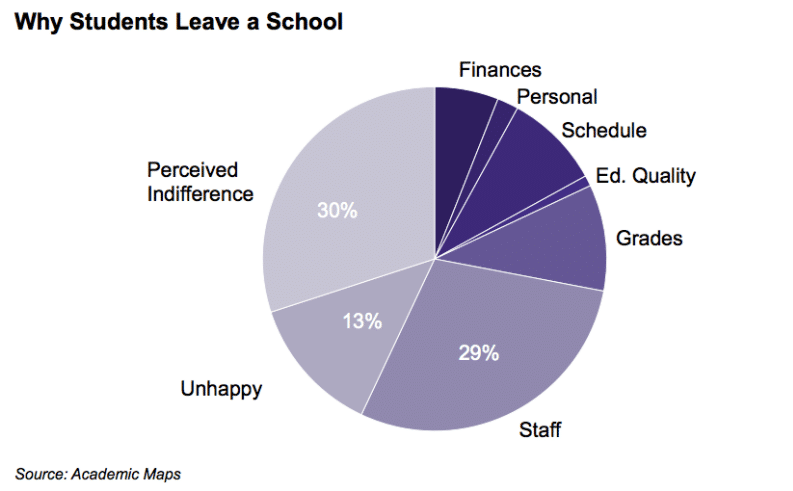Namecoach had the honor to present at the American Association of Collegiate Registrars and Admissions Officers (AACRAO) conference, a national higher education association. We joined thought partner and Namecoach customer Thomas Black, Associate Vice Provost and Registrar at Stanford University. At Namecoach, we believe in the importance of diversity in higher education, so partnering with experts in the field helps us understand how they approach diversity, equity, and inclusion (DE&I) in higher education.
Black, like many higher education administrators, has been part of a growing conversation around diversity in colleges and universities. While colleges have long been active participants in these conversations, students are now demanding faster, stronger, and more visible action on these issues. Students have taken a more active role in advocating for practices that are equitable towards, and culturally inclusive of, their peers, especially along lines of race, class, gender, and sexual orientation.
The changing climate is creating a space to set norms and establish best practices for DE&I challenges that universities and colleges have not previously addressed in a meaningful way. In our work with Black, we looked at how Stanford is fostering cultural inclusion and respecting students’ identities by learning preferred pronouns and proper name pronunciations.
What do we mean when we talk about inclusion?
The first step in becoming a more inclusive institution is to understand what we mean when we talk about inclusion. There are two core tenets of inclusion at the higher education level: respect and belonging. To create an inclusive environment and ensure students are successful, a college or university must address both. Black helped us take a deeper look at these issues to better understand the impact they have on students and campuses every day.

Respect
The University of California (UC) Campus Climate survey is the largest university system study of its kind. The comprehensive survey is part of UC’s effort to become a model for diversity, equity, and inclusion at the higher ed level.
After surveying thousands of students, it became clear that the need for respect was an important part of their campus experience and a key driver of the study. As noted on the Campus Climate Study site, “Respect is one of the most critical words… It’s not just the experience of individuals and groups on a campus; it’s also the quality and extent of the interaction between those various groups and individuals that determines a healthy campus climate.” Students have high expectations from their schools and every interaction with faculty, staff, and administrators is an opportunity to meet them.
Belonging
College and graduate students spend an enormous amount time on campus engaging with faculty and interacting with peers. Thus, a sense of belonging is an essential part of creating an inclusive environment. If students don’t feel like they belong, they will struggle to fully engage and contribute to the campus community.
The Office of Diversity and Inclusion at the University of South Carolina notes that “[Feeling] embraced by a warm and welcoming campus culture. [Feeling] immediately at home. That’s what inclusion is all about. It’s about feeling like you belong and that your life, your voice, and your contributions truly matter through the mutual civility and respect that we show one another.” It’s up to schools to create an environment that fosters this sense of belonging to ensure students come, stay, and thrive on campus.
Why it matters
Respect and belonging both contribute to a student’s sense of whether or not they can be successful. When they question whether they fit in or whether the campus environment respects their identity, it burns intellectual, emotional, and creative energy they could otherwise apply to academic achievement. As a result, performance suffers and students fall behind academically. In many cases, they simply leave.
“There is much more to college achievement gaps than differences in preparation or motivation or ability. When individuals are repeatedly asking themselves whether they belong or not, it… diminishes motivation to engage and persist in school. Students ask fewer questions in class, study less often with others, and avoid office hours. As a result, their grades suffer.” —“How Worries about Belonging can Inhibit Achievement” – Natalie Orenstein

The perception that a school is indifferent towards a student’s identity is the number one cause of student attrition. In other words, if students don’t feel like the faculty and staff at a college or university care about them enough to take action, advocate for them, or simply learn more about their needs, they will leave.
A universal concern
Retention is an issue that impacts every department at a college or university–from academics to athletics, and registrars to residence life–keeping students from freshman year through graduation is a major indicator of a university’s climate, academic support, and student experience.
At AACRAO, we learned more about how much administrators care about retention and the factors that influence students’ decision to stay or go. To learn more about how college and universities can begin addressing these issues, Part 2 of this post will examine strategies schools can use and the impact of those efforts at Stanford.






